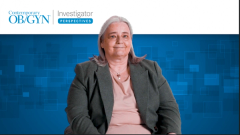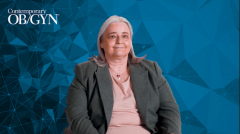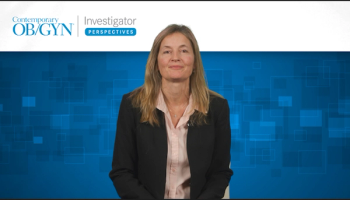
Lead Investigator Perspectives on the Future of VMS Management
A panelist emphasizes that the OASIS 4 findings, with those of prior OASIS studies, strongly support the use of this drug class for managing vasomotor symptoms (VMS) in patients with breast cancer receiving endocrine therapy and highlights the need for future research in underserved populations such as men with breast cancer and those with metastatic disease.
Episodes in this series

The findings from the OASIS 4 trial, along with those from OASIS 1, 2, and 3 in women without breast cancer, provide a strong foundation for considering this class of drugs as a legitimate treatment option for VMS and related sleep disturbances. Although the earlier OASIS studies focused on women experiencing natural or surgically induced menopause, the results from OASIS 4 are particularly meaningful because they were collected in the context of breast cancer, specifically among patients undergoing endocrine therapy. These are individuals who have long lacked effective, nonhormonal options for managing such adverse effects.
For patients with hormone receptor–positive, HER2-negative breast cancer, endocrine therapy is a cornerstone of treatment, often lasting 5 to 10 years. However, adherence is a major challenge due to persistent adverse effects such as hot flashes and insomnia. If approved globally, this drug could serve as a valuable support to help patients better tolerate long-term therapy, potentially improving quality of life and treatment adherence. By offering relief from some of the most burdensome symptoms, it may enhance adherence and thereby support better long-term outcomes in breast cancer care.
Looking ahead, there is a clear need to evaluate this treatment in additional populations that have not yet been studied, such as patients with metastatic breast cancer who are required to undergo induced menopause and men with breast cancer, a rare but important subgroup. These patients also experience high rates of VMS, often without suitable management strategies. Expanding research to include these groups will ensure that the potential benefits of this therapy can reach all who might need it, filling a longstanding gap in supportive care for patients with breast cancer.
Newsletter
Get the latest clinical updates, case studies, and expert commentary in obstetric and gynecologic care. Sign up now to stay informed.







